ESL at the Beach Vocabulary
This page is all about ESL at the beach vocabulary. It will teach you all the words that you will need to know when you have a day trip to the beach or go on holiday to the seaside. This is something that is fun, so it is good to do with your friends if you are in an English speaking country.

The first section of this page has the ESL at the beach vocabulary list. This list has many words about going to the beach, as well as their definitions and the part of speech that they are. Then after that there is a set of flashcards that you can download with all of the beach vocabulary on them. The next part has recordings of the vocabulary being spoken by a native English speaker so you can hear the correct pronunciation.
Then there are three exercises for you to do that will test your knowledge of the vocabulary and how well you have learnt it. The activities are as follows:
- Selecting the definition that goes with a word.
- Selecting the word that goes with a definition.
- Selecting the word that matches a picture.
ESL at the Beach Vocabulary List with Definitions
This list has all the ESL at the beach vocabulary items that you will need to be able to talk about going to the beach. Each of the ESL at the beach vocabulary items has a definition to explain the meaning of the word. Then after the vocabulary list there are some flashcards for you to download and some recordings of the words being spoken by a native speaker.
Barnacle: A small sea creature that has a shell and usually sticks tightly to rocks and the bottom of boats. (noun)
Bay: A part of the sea that is partly surrounded by a curved piece of land. (noun)
Beach: An area of sand at the edge of the sea. (noun)
Beach ball: A large, brightly colored plastic ball filled with air that people use for playing games on the beach. (noun)
Beach buggy: A small car with big wheels and open sides that you can drive across sand. (noun)
Beach towel: A large towel that is used for lying in the sun. (noun)
Bikini: A two-piece item of clothing that women use for swimming. (noun)
Boardwalk: A path made of wooden boards that is built along a beach. (noun)
Boat: A small ship that people use to travel on the sea. (noun)
Cape: A large piece of high land that sticks out into the sea. (noun)
Clam: A small sea creature that has a shell in two parts and can be eaten. (noun)
Coast: The land beside the sea. (noun)
Conch: A snail-like sea creature that lives in a large spiral shell. (noun)
Cool box: A container to keep food and drinks cool. (noun)
Coral: A substance like rock formed in the sea by groups of very small sea creatures. (noun)
Cove: A part of the coast that curves and partly surrounds the sea. (noun)
Crab: A sea creature with a round flat body covered by a hard shell and five pairs of legs that people can eat as seafood. (noun)
Current: The continuous movement of water in the sea. (noun)
Deckchair: A folding chair with a low seat made of a long strip of cloth that people usually use on the beach. (noun)
Dive: To jump into water or move down under the water with your head and arms going in first. (verb)
Dock: An area of water that can accommodate a ship. (noun)
Dune: A hill of sand near a beach. (noun)
Ebb tide: The regular movement of the sea away from the coast. (noun)
Fin: A thin part that sticks out of the body of a fish. (noun)
Fish: An animal that lives in water and uses fins and a tail to swim. (noun)
Fish: To try to catch fish. (verb)
Fishing: The sport or business of catching fish. (noun)
Hat: A covering for the head, usually has a flat edge that sticks out to protect your face from the sun. (noun)
Hermit crab: A kind of crab that uses the empty shells of other sea creatures. (noun)
High tide: The time when the sea at its highest level. (noun)
Inner tube: A rubber tube filled with air that is used to help you float on water. (noun)
Island: A piece of land that is surrounded by water. (noun)
Jellyfish: A sea creature with a soft, almost transparent body. (noun)
Jet-ski: A craft for riding on water that is ridden like a motorbike. (noun)
Kayak: A type of light boat that is moved using a paddle. (noun)
Kelp: A large, brown plant that grows in the sea. (noun)
Lagoon: An area of sea water that is separated from the sea by a line of rocks and sand. (noun)
Lifeguard: A person on a beach whose job is to keep swimmers save. (noun)
Life jacket: A jacket without sleeve that is filled with air and designed to help you float in water. (noun)
Life preserver: A ring filled with air that can float and is used to rescue a person who has fallen into water. (noun)
Limpet: A small sea animal with a cone-shaped shell that lives on rocks. (noun)
Low tide: The time when sea water is at its lowest level. (noun)
Mangrove: A tropical tree that has aerial roots and grows near water. (noun)
Mussel: A small sea animal that can be eaten and lives inside a two-part shell that can be open up. (noun)
Neap tide: The time when there is only a small difference between the level of the water at high tide and at low tide. (noun)
Ocean: A very large area of water. (noun)
Palm tree: A tropical tree that has a tall trunk and a mass of long pointed leaves at the top. (noun)
Pelican: A large bird with a bag of skin under its beak that catches fish and lives near water. (noun)
Pier: A low structure that is built at the edge of water where boats stop next to it and people walk along it. (noun)
Reef: A line of sharp rocks or a raised area of sand near the surface of the sea. (noun)
Relax: To rest and do something enjoyable after working. (verb)
Rest: To stop working or doing an activity for a period of time. (verb)
Rock pool: A small amount of water that is found between the rocks by the sea. (noun)
Sail: To travel on the water. (noun)
Sailing boat: A small boat with a sheet of material used to catch the wind. (noun)
Sand: A substance that consists of very small pieces of rocks and is found at a beach. (noun)
Sandbar: A long mass of sand that is formed by the movement of the water at the point where a river meets the sea. (noun)
Sandcastle: A pile of sand on a beach that looks like a castle, usually made by children. (noun)
Scuba: The activity of swimming underwater using special breathing equipment. (noun)
Sea: A large area of salty water that is smaller than an ocean. (noun)
Seagull: A large grey or white bird that lives near the sea. (noun)
Seashell: The empty shell of a small sea creature that is often found on the beach. (noun)
Seashore: The land at the edge of the sea. (noun)
Shark: A large and dangerous sea fish that has several rows of sharp teeth. (noun)
Shell: The hard protective covering of an animal. (noun)
Ship: A large boat that people use to travel on the sea or to transport goods across the sea. (noun)
Snorkel: A tube that allows you to breathe while swimming under water. (noun)
Starfish: A flat sea animal that has the shape of a star. (noun)
Sun: The object in the sky that gives the earth light and heat. (noun)
Sunbathe: To sit or lie in the sun’s light, usually on a beach, to make your skin darker. (verb)
Sunburn: A skin condition that is red and painful that is caused by too much time in the sun. (noun)
Sunglasses: Dark glasses that you wear to protect your eyes from bright sunlight. (noun)
Sunscreen: A lotion or oil that you put on your skin to protect it from being damaged by the sun. (noun)
Suntan: Nice brown skin that people with pale skin gets after spending time in the sun. (noun)
Surf: To ride on waves while standing or lying on a special board. (verb)
Surfboard: A long narrow board that is designed to ride on waves. (noun)
Swim: To move through water by moving your arms and legs. (verb)
Swimming cap: A soft rubber of plastic cap that you use to keep your hair dry while swimming. (noun)
Swimsuit: A piece of clothing that people wear for swimming. (noun)
Tan: The brown color that you get after spending time in the sun. (noun)
Tide: The rise and fall of the sea level. (noun)
Undertow: The water current that pulls away from the land when a wave comes onto the shore. (noun)
Underwater: To be below the surface of an area of water. (adjective)
Water: An area that is not covered by land, such as the sea, lake, river, etc. (noun)
Wave: A line of raised water that moves across the surface of the sea or ocean. (noun)
Wet: To be covered in water. (adjective)
Wharf: A flat structure that is built beside the sea so that boats can stop next to it. (noun)
Yacht: A boat with a sail that is used for sport or travelling for pleasure. (noun)
Vocabulary Flashcards for At the Beach Words
The following are some ESL at the beach vocabulary flashcards that you can download by either clicking the picture or the following link. You can use them to help you learn the vocabulary if you cannot ever access this site.
ESL at the beach vocabulary flashcards
Spoken at the Beach Vocabulary
Now there are two recordings of the ESL at the beach vocabulary being spoken by a native English speaker. The first is a recording that you can listen to, while the second is a video where you can watch the ESL at the beach vocabulary flashcards at the same time as the words are spoken. You should listen to them as often as you need to for you to learn the correct pronunciation.
ESL at the Beach Vocabulary Exercises

Exercise 1 – Correct Definition
In the first ESL at the beach vocabulary task you need to look at the word given in each question and then decide which definition (options A-D) in each question is correct. When you have answered all five questions you can use the get score button to see how well you did.
ESL at the Beach Vocabulary Definitions
Choose the correct definition for the at the beach vocabulary in this quiz.
Exercise 2 – Correct Meaning
For the second ESL at the beach vocabulary activity you need to read the description given in each question and then decide which word (options A-D) in each question matches the definition. Then you can use the get score button to see the correct answers.
ESL at the Beach Vocabulary Identification of Meaning
Choose the word that matches the definition given in each of the five questions in this quiz.
Exercise 3 – Identify Picture
Now in the third ESL at the beach vocabulary exercise you need to decide which word (options A-D) in each question matches the pictures given below. Then when you have finished you can again use the get score button.
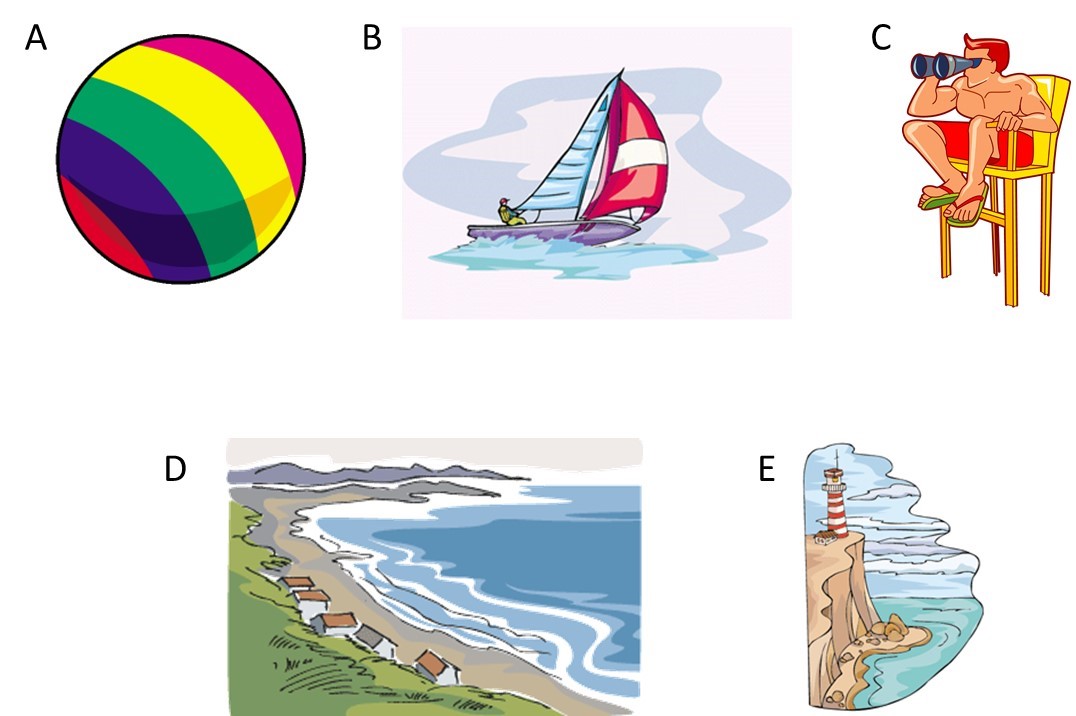
ESL at the Beach Vocabulary Picture Descriptions
Identify the best description for each of the images (A-E) given above that correspond to the five questions in this quiz.
Other Pages about at the Beach that You Might
Like
ESL at the Beach Conversations
ESL at the Beach Listening
ESL at the Beach Reading
ESL at the Beach Writing
ESL 4u home › Vocabulary › At the beach


|
|
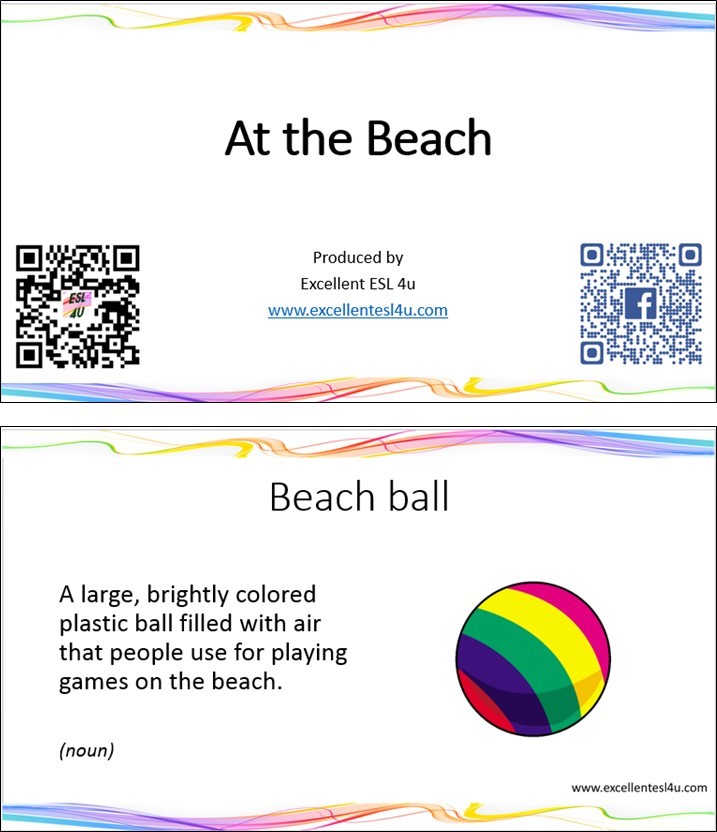
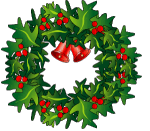
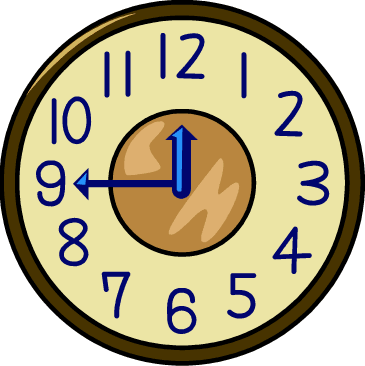
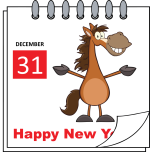
New! Comments
Have your say about what you just read! Leave me a comment in the box below.